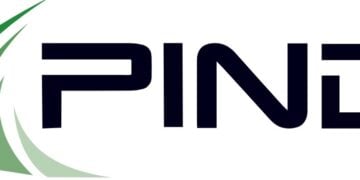Stransact Chartered Accountants, in collaboration with the Nigeria Revenue Service (NRS), enlightened corporate taxpayers and business owners on Wednesday on how to navigate Nigeria’s new tax landscape.
At a one-day seminar for corporate taxpayers and business owners held in Lagos on the theme ‘Navigating Nigeria’s New Tax Landscape: Understanding the 2025 Tax Reform Acts and Mandatory E-Invoicing for Taxpayers,’ speakers also examined the 2025 Tax Reform Act, looking at key changes and implications.
With over 250 physical and virtual participants, the event offered networking opportunities.
Stransact Chartered Accountants is one of Nigeria’s audit, tax, and consulting services firms with strong affiliation with RSM International, one of the largest global networks of accounting firms, which gives Stransact access to the resources of a network of 64,000 employees in 120 countries.
President Bola Ahmed Tinubu signed four tax bills passed by the National Assembly on June 26, 2025, to improve revenue generation and make Nigeria more investor-friendly. These include the Nigeria Tax Act (NTA), the Nigeria Tax Administration Act (NTAA), the Nigeria Revenue Service (Establishment) Act (NRSA), and the Joint Revenue Board (Establishment) Act (JRBA).
The Tax Laws aim to simplify tax collection, reduce the tax burden on compliant businesses, and reposition the country as a more attractive investment hub, while boosting revenue through a wider and fairer tax net.
“The event opened my eyes to reliefs that come with the new tax laws, as HR manager, I have learnt of the rent relief, some on mortgages and I can sensitise my colleagues on them and they can earn more when the law comes into effect,” said HR specialist at Lekoil, Ifeanyi Ndukwe.
Also at the event, the three-session panellists discussed: Mandatory E-Invoicing: Understanding the FIRS Electronic Fiscal System (EFS) and Merchant Buyer Solution (FIRSMBS); 2025 Tax Reform Act: Navigating Compliance Challenges and Future Outlook; and Practical Aspects of E-Invoicing Compliance: Integration, Data, Requirements, and Transaction Models.
In a major transformation of digital tax administration, the Federal Inland Revenue Service (FIRS) recently commenced an electronic invoicing solution (e-invoicing) aimed at revolutionising tax payment in the country.
During one of the panellists’ sessions, they noted that the 30 per cent fund required by the new tax law to be deposited in a Nigerian bank escrow account incurs no additional cost for oil and gas companies, but is intended to ensure the funds are kept.
“The extra cost is just a misconception in my own opinion, the new law is to ensure that 30 per cent of the fund is kept with a Nigerian bank, which can develop our country,” Gabriel Ogunjemilusi, former FIRS director.
He explained that, the 30 percent is from existing funds mostly kept in foreign escrow accounts by the companies.
In the Petroleum Industry Act 2021, a Decommissioning Fund was enacted.
Operators must establish a dedicated Decommissioning and Abandonment Fund with an independent financial institution.
“It was assumed that they could take it offshore. So, all of them, then the law is given, making them make provisions, take the money offshore, and keep it in other countries’ banking sectors,” Ogunjemilusi said.
As Nigeria currently experiences a wave of divestments by international oil companies (IOCs), increased attention is being directed towards decommissioning ageing infrastructure.
“The PIA already provided that it should be funded, but you can trace if it’s been funded by insisting on Nigerian banks. And in practice, many Nigerian players who are now predominant are struggling to fund it,” deputy director, head treaties & international tax policy, FIRS, Kehinde Kajesumo, said.
Kajesumo explained that the law is to ensure the security of the oil production environment and that the money will be available when it is needed in the future.
Also, discussions on the rent relief of 20 per cent of annual rent paid, subject to a maximum of N500,000, sparked questions about who gets it among married couples who pay rent together.
Kajesumo said the FIRS will clarify the rent relief provision more, including how it applies when couples jointly pay rent.
The seminar workshop was set up for corporate taxpayers and businesses to help them navigate the new Nigerian tax laws.





